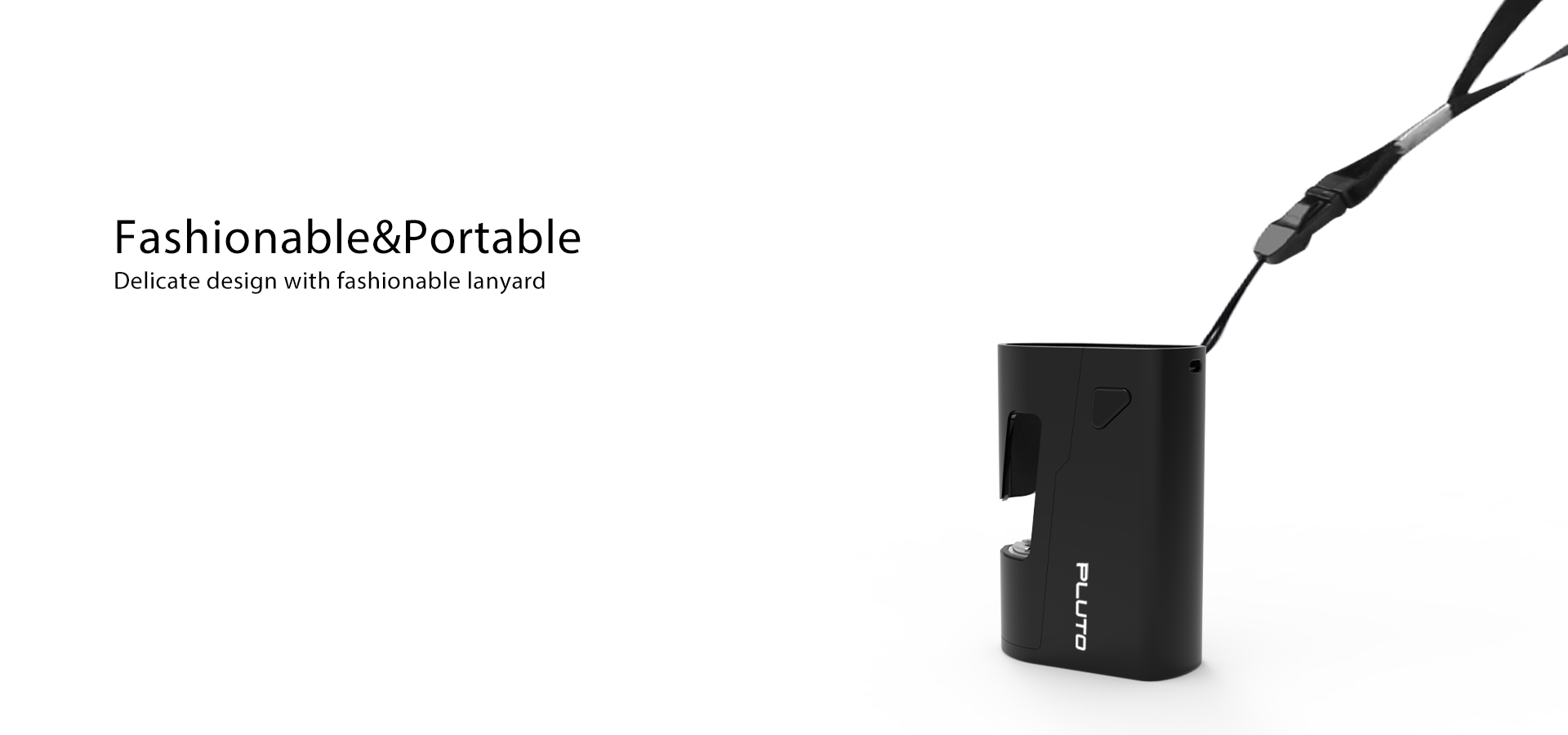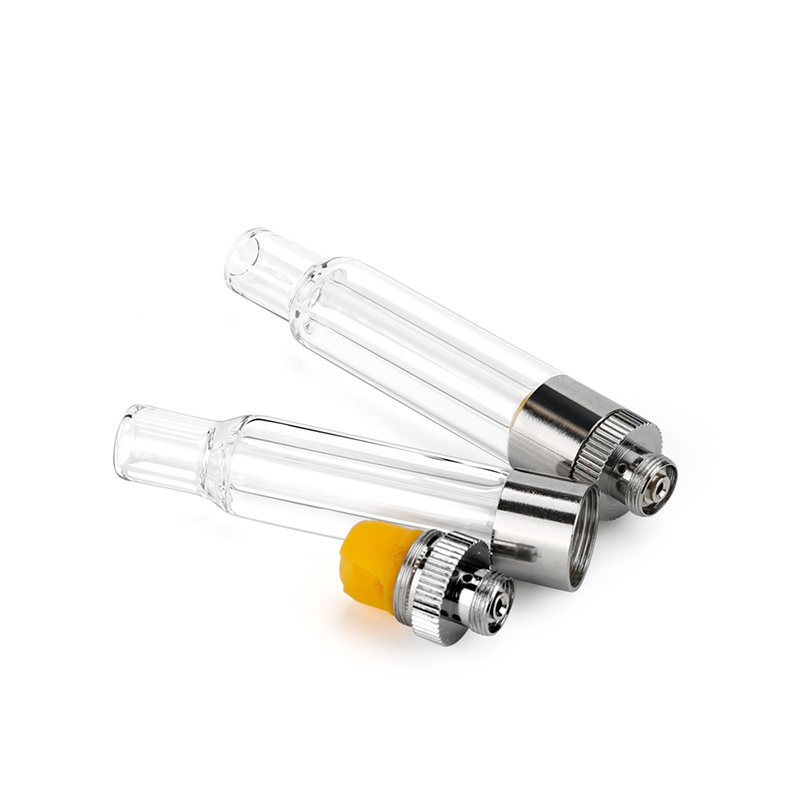Walk down the street, and you will probably spot finger-sized colourful plastic tubes discarded on the ground.
Disposable vapes are booming in popularity, especially among those aged 18-34. They are easy to use and cheap. Ceramic Cartridge

But campaigners say they are an environmental nightmare with one activist calling for them to be banned.
The vape industry told BBC News that the problem lies with unclear disposal rules and that there needs to be better national schemes for recycling.
Disposable vapes - which last for around 600 "puffs" - contain valuable materials such as lithium batteries and copper, as well as plastic, meaning they are classed as Waste Electrical and Electronic Equipment (WEEE).
Consumers should dispose of them at a household recycling centre or at the shop where they bought the device.
But many are unaware. Before Kate Matteson gave up vaping, she exclusively used single-use vapes.
"The disposable ones are just so readily available at the counter of every corner shop, right next to the chewing gum. It's hard to make the jump from a £5 ready-to-go vape, to a £20+ reusable contraption that might leak and is more hassle," she told BBC News.
She said she had no idea they were recyclable and that the "messaging could definitely be improved".
"If the vape companies ran social media ads letting people know how to dispose of them, it would grab our attention," she suggested.
A recent study suggested more than half of vapes are thrown directly in the bin. Up to 1.3 million single-use vapes are thrown away each week, according to Material Focus, a not-for-profit organisation focusing on recycling e-waste.
The lithium batteries - a finite material that rechargeable technology relies on - in these vapes alone equate to 10 tonnes of lithium a year, equivalent to the batteries inside 1,200 electric vehicles.
But they are not straightforward to recycle. If damaged when thrown away, lithium batteries can cause fires at waste disposal plants and need to disposed of carefully, explains Waste Experts, a certified WEEE recycler.
The pic shows our tear-down of a disposable vape by the way, that big lozenge in the middle is the lithium battery. 2 million a week sold in the UK. All thrown away. pic.twitter.com/iNghan6XeP
The difficulty of recycling disposable vapes is leading campaigners like Laura Young to call for a ban.
Laura, a PHD student and climate activist, collects discarded vapes littered in her home town of Dundee, Scotland.
"I think people are unaware of just what is inside a disposable vape. People are shocked to find out there is a battery inside, along with many other contraptions," she says.
Material Focus are pushing for vape recycling to be made much easier, and for manufacturers and retailers to install collection points inside shops.
Currently large shops must take back all items of small electronic products like disposable vapes in store to be recycled for free, regardless of whether the item was bought in that shop.
And smaller retailers are legally obliged to finance the take back, collection and treatment of these products when they become waste.
But the UK Vape Association claims that "there is genuine confusion across the marketplace with respect to the WEEE regulations" as well as "misunderstanding" in the industry about who is responsible for disposal.
One leading vape manufacturer, Elfbar, told BBC News that it recognises the fast growth of the vaping market has "environmental implications."
It says it plans to address the problem by introducing recycling boxes for retailers to use to collect Elfbar vapes.
"We are also placing great emphasis on the future design of our products so that they have a longer shelf life rather than just being single use," it said.
Another popular company, Geekbar, declined to comment.
When asked by BBC News about the environmental problem of disposable vapes, the director general of the UK Vape Industry Association suggested the regulations are unclear.
"You have to dig deep into the regulations to find any mention of e-cigarettes which could be down to the fact that when they were introduced at the beginning of 2014, disposable vapes were very much in their infancy," said John Dunne.
He wants the Department for Environment, Food and Rural Affairs (Defra) to provide clarification on the "rules, regulations and obligations of the industry."
Defra says the government will set out plans for reform of the existing WEEE regulations "in due course".
You should be able to recycle a disposable vape pen at large supermarkets, electrical stores and local recycling centres. You can find your closest centre here.
At least 32 killed after bombing in Pakistani mosque
Johnson: Putin made missile threat in pre-war call
China's Covid wave 'coming to an end' - officials
Funeral held for battleground body collector in Ukraine
How Indians crack one of the world's toughest exams
'Even doctors still in training plan to leave Nigeria'
Trying out the new tech offering period pain relief
Trump's 2024 campaign has a different look, for now
Five key questions raised by Tyre Nichols video
What happens when 'child geniuses' grow up?
'Elon Musk has made me embarrassed to drive my Tesla'
The architectural wonders of Patagonia's most remote archipelago
A remedy for low motivation and passion
The 90s cop show that changed TV
How one volcano could make global chaos

Dank Vapes Cartridges © 2023 BBC. The BBC is not responsible for the content of external sites. Read about our approach to external linking.